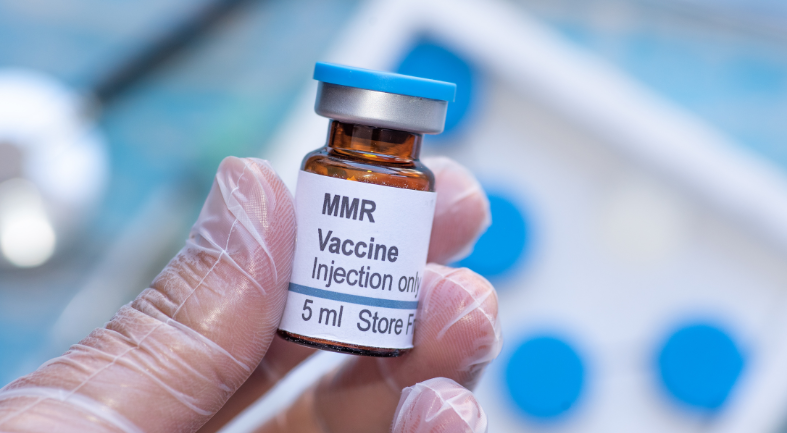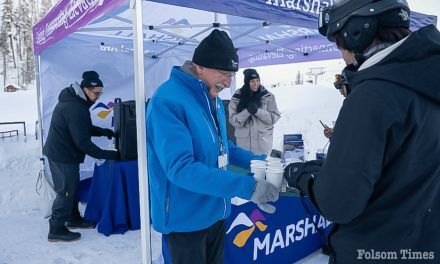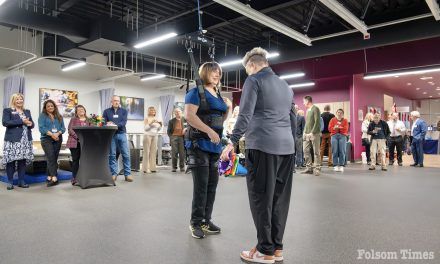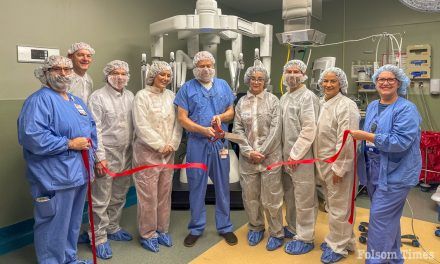Sacramento County Public Health officials have confirmed a case of measles in an unvaccinated child who recently returned from international travel. This is one of 14 confirmed measles cases in California in 2025.
The individual developed symptoms after returning to the United States and received care at Mercy San Juan Medical Center on June 10. The patient is currently recovering at home. SCPH identified international travel as the likely source of exposure.
No additional cases have been identified, but lab testing recently detected measles in wastewater samples collected from the Sacramento Regional Wastewater Treatment Plant between May 20–24 and again June 2–3. This case has not been directly linked to the recent detections, but SCPH uses wastewater surveillance to alert local providers to possible measles activity, supporting early diagnosis and increasing community awareness.
Measles is extremely contagious, spreading through the air and via contaminated surfaces. Contact tracing conducted by Sacramento County Public Health indicates that the individual visited a healthcare facility while infectious and may have exposed patients, visitors, and healthcare providers at the following location:
Mercy San Juan Medical Center, Emergency Department, 6501 Coyle Avenue in Carmichael
June 10, between 5:11 p.m. and 9:45 p.m.
Mercy San Juan Medical Center has identified patients and staff who may have been exposed and is coordinating with Sacramento County Public Health to notify those individuals. The hospital implemented appropriate infection control measures once measles was suspected and alerted public health officials.
Anyone who was at the above location during the date and time listed may be at risk of developing measles and should contact Sacramento County Public Health’s Communicable Disease Program at (916) 875‑5881. A trained public health team is available to assess individual risk and determine whether preventive steps, including MMR vaccination, are recommended.
This individual does not pose a risk of measles to the general public outside of those present at the facility during the specified date and time.
“This case shows how easily measles can re-enter our community through international travel,” said Dr. Olivia Kasirye, Sacramento County Public Health Officer. “Verifying your vaccination status is one of the most effective ways to protect yourself and those around you. When more people are vaccinated, we all benefit from a healthier, more protected community.”
Measles can be safely prevented with a measles, mumps, and rubella vaccine (MMR) or a measles, mumps, rubella, and varicella vaccine (MMRV). They are administered in two doses (typically given at one year and four to six years old) and are highly effective. Two doses are 97% effective in preventing measles, and one dose is 93% effective.
Measles is highly contagious and can spread through the air and on surfaces. People can contract measles just by being in the same room with someone who is infectious. Early symptoms typically appear 8 to 12 days after exposure and include fever, cough, runny nose and red eyes, followed by a rash that spreads from the face down the body. Measles can cause serious complications, especially in infants, young children and individuals with weakened immune systems.
Anyone experiencing symptoms of measles should stay home, avoid contact with others, and call their healthcare provider before visiting a medical facility. Early reporting and isolation help prevent further spread.
The United States has reported over 1,000 measles cases so far in 2025 – up from 285 in all of 2024. Most cases involved unvaccinated individuals. Public health officials have linked the majority of this year’s cases to domestic transmission, especially in Texas, New Mexico, and Oklahoma. Of the 13 prior cases confirmed in California, 10 involved international travel. Learn more about measles on theCDC Measles websiteor theCDPH Measles website.
SCPH encourages residents to review their vaccination records. Adults born after 1957 who lack documentation of MMR vaccination or prior measles infection should speak with a healthcare provider. Some adults may need a second dose. Individuals vaccinated between 1963 and 1967 may require revaccination. Children should receive the MMR vaccine at 12–15 months and again between ages 4 and 6. Infants as young as 6 months can receive an early dose before international travel. For more information regarding vaccinations, please visitwww.sacvax.com.
Nearly all health insurance plans are required to cover the cost of MMR and MMRV vaccines. Insured persons should check with their healthcare provider or a local pharmacy to see what vaccines are offered. Uninsured or underinsured children and adults can access free or low-cost vaccines at clinics enrolled in the Vaccines for Children (VFC) and Vaccines for Adults (VFA) programs. For information about clinics that offer free or low-cost immunizations for individuals who are uninsured or underinsured, call 2-1-1.
Anyone experiencing symptoms of measles should stay home, avoid contact with others, and call their healthcare provider before visiting a medical facility. Early reporting and isolation help prevent further spread.
Copyright © 2025, Folsom Times, a digital product of All Town Media LLC. All rights reserved. No portion of this publication may be reproduced, distributed, or transmitted in any form or by any means, without the prior written permission of the publisher.




